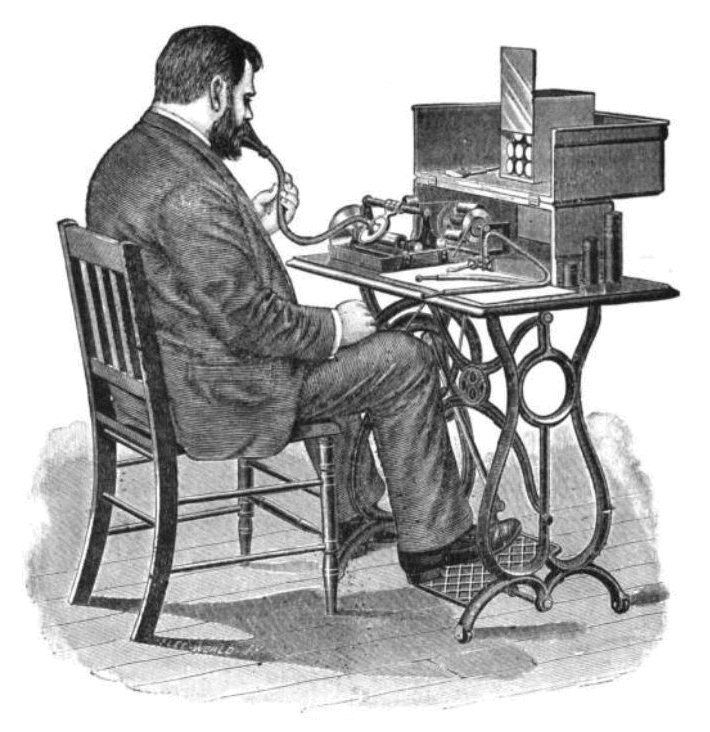New “Shaving Cream” Stops Bleeding

*This blog post was originally published at Medgadget*


*This blog post was originally published at Medgadget*
I took my board exam this week, and I think I liked it.
Which is not to say it was easy, or even altogether fair. And though I felt a little bit better upon finishing than these folks, I could be grossly deluded in my estimation of the number and trickiness of truly tough questions.
But there was a point in the exam, three or four hours into it, when I was overcome by the sheer variety of extraordinary patient presentations — the environmental catastrophes, bizarre overdoses and bites from creatures great and small. Overcome, not because I’ve never seen patients like this (for the most part, I haven’t) or because I didn’t know how to diagnose and manage them (I think I did), but really because these questions underscored what an amazing specialty I’ve chosen. Read more »
*This blog post was originally published at Blogborygmi*
This post at The Central Line caught my eye:
Texas Recognizes ABPS Certification
The Texas Medical Board ruled on Oct. 20 that physicians certified by the American Board of Physician Specialties (ABPS) could advertise themselves as board certified to the public.
The ABPS is the certifying body of the American Association of Physician Specialties (AAPS). The ABPS sponsors 17 boards of certification, including the Board of Certification in Emergency Medicine (BCEM).
For a number of years, ABPS, in conjunction with AAPS, has been seeking recognition from various state medical boards, requesting that they allow physicians certified through an ABPS board to advertise themselves as board certified. The organizations were successful in Florida in 2002 but were recently rebuffed by the State of New York due to the lack of residency training as a qualification for ABPS board certification.
ACEP does not recognize BCEM as a certifying body in emergency medicine. Read more »
*This blog post was originally published at Movin' Meat*

The patient has fluferculosis, buperculosis, conbumption, arg!
I’ve dictated charts since I started private practice 16 years ago. Although I like to think that I’m pretty good with the English language, it turns out that when I speak it, I mumble, slur and frequently dictate things that make no sense to the transcriptionist.
A standard chart for me might look like this:
‘This 44-year-old_____ complains of several days of ______ severe in the_______right______explosive and sudden in quanset. (Unable to understand physician)….and stated that she(he) {please clarify} would not be short of ______ usually has no pain in _____ when she (he) falls onto the crown?’
Now, this is difficult enough, as you might expect. And often worse when I’m finishing a night shift, and the chart says ‘the patient is awake, alert and sleeping quietly at discharge,zzzzz.’
But voice transcription takes it to a new level. Read more »
*This blog post was originally published at edwinleap.com*
In a comment on my last post, faithful reader and frequent commenter Anonymous asked, “How do you get a good reading on interpersonal skills in a brief interview?”
That’s a good question. I suppose the simplest answer is, you don’t, at least not in any sort of comprehensive way. In some cases you can — a person who is warm, engaging, and able to hold up their end of a lively conversation in an interview setting is always going to be near the top of my list. But I make a lot of allowances for people in their interviews — they are nervous, know they are being watched and judged, it is a high-stakes encounter for them, and most people are a lot more constrained in an interview than they are in their day-to-day lives. Read more »
*This blog post was originally published at Movin' Meat*
It’s no secret that doctors are disappointed with the way that the U.S. healthcare system is evolving. Most feel helpless about improving their work conditions or solving technical problems in patient care. Fortunately one young medical student was undeterred by the mountain of disappointment carried by his senior clinician mentors…
I am proud to be a part of the American Resident Project an initiative that promotes the writing of medical students residents and new physicians as they explore ideas for transforming American health care delivery. I recently had the opportunity to interview three of the writing fellows about how to…
Book Review: Is Empathy Learned By Faking It Till It’s Real?

I m often asked to do book reviews on my blog and I rarely agree to them. This is because it takes me a long time to read a book and then if I don t enjoy it I figure the author would rather me remain silent than publish my…
The Spirit Of The Place: Samuel Shem’s New Book May Depress You

When I was in medical school I read Samuel Shem s House Of God as a right of passage. At the time I found it to be a cynical yet eerily accurate portrayal of the underbelly of academic medicine. I gained comfort from its gallows humor and it made me…
Eat To Save Your Life: Another Half-True Diet Book

I am hesitant to review diet books because they are so often a tangled mess of fact and fiction. Teasing out their truth from falsehood is about as exhausting as delousing a long-haired elementary school student. However after being approached by the authors’ PR agency with the promise of a…